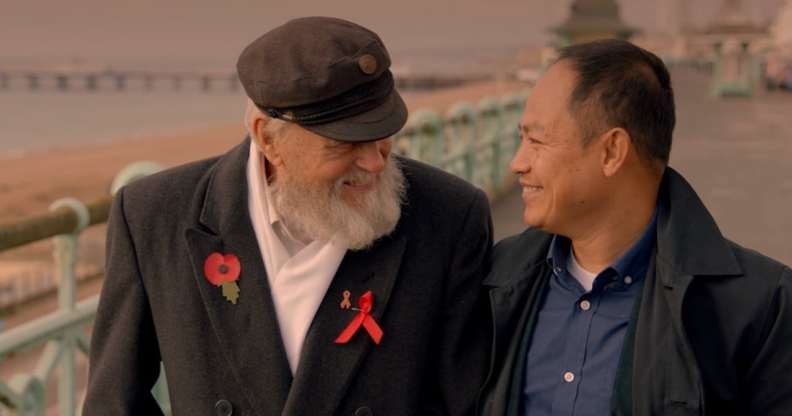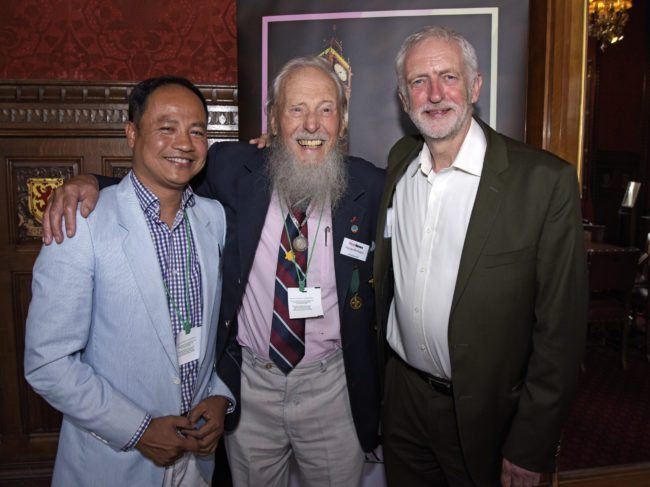How HIV treatment has changed: This pensioner used to take dozens of pills a day, now he only takes two

George and Somchai
A gay man in his 90s has spoken out about living with HIV and the impact it has had on his life.
George Montague, who married his long-term partner Somchai at a ceremony at Brighton Town Hall in 2015, described how medical advances have transformed what it is like to live with the virus.
“I was very aware of it and I saw three of my friends die from it, quite quickly, within three months of getting it they were dead,” he says, speaking about the AIDS crisis in the 1980s, when the virus was little understood and homophobia was rife.
The situation is now very different in the UK, where around 90,000 people in the UK are living with HIV.
Around 96 percent of those diagnosed are accessing antiretroviral treatment and 94 percent are virally suppressed, according to the charity Avert.
Modern treatment and medical advances mean that people living with HIV are healthier and living longer than ever before.
However, a lifetime of treatment exposes them to ongoing side-effects and drug-to-drug interactions which can negatively impact their quality of life.
To address the issue, a new treatment option called Juluca has recently been launched by ViiV Healthcare, the first two-drug regimen, once-daily, single-pill for the treatment of HIV in the UK.

(Left to right) Somchai, George and Jeremy Corbyn
It’s a far cry from the medications Montague has taken in the past, as his husband adds he used to have to take dozens of tablets a day.
“I’m as fit as anybody can possibly be at my age,” Montague says. “For the last 12 years, I just don’t think about it.”
“I now only go to the clinic once a year. They treat me like a VIP. I don’t think there is anybody…Nobody in their nineties. I am the oldest,” he adds.
Montague, who has previously described himself as the “oldest gay in the village,” received an apology from the Government last year for his homosexual conviction after a 43-year-long battle.

Medical advances have improved HIV medications (ESTHER LIM/AFP/Getty)
He was given an “abject apology” in a letter from the Home Office for his 1974 conviction of gross indecency with a man.
In 2017, the government pardoned thousands of gay and bisexual men who were convicted under historic anti-gay laws, but Montague argued they should receive a full apology as a pardon “accepts that you were guilty.”
Thousands signed Mr Montague’s petition asking for “an apology before I die,” which he delivered to Downing Street.
He told BBC Radio 4’s World at One: “It really made my day, I was over the moon.
“The wording is so wonderful and so explicit. An ‘abject apology’ from the government.”
Speaking to Brighton Pride, Montague said the letter was the culmination of everything he had worked on for 40 years – and said he couldn’t think of anything any he wanted to achieve before turning 100.
“As I tell everyone all the time I am the happiest, luckiest old gay guy in the world,” he said.
“All I would say is something I’ve been saying for years. This old queen is looking forward to getting a birthday card from a real one.”

